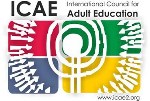Published on Sat, 2015-09-12 07:36
The United Nations General Assembly adopted a resolution on principles to guide sovereign debt restructuring processes on the afternoon of 10 September. This landmark resolution was submitted to the General Assembly by South Africa (current chair of the Group of 77 and China developing countries). It was initiated by Argentina in the wake of the vulture funds lawsuit by an international hedge fund against the country. |
Published on Sat, 2015-09-12 07:22
The Basic Principles on Sovereign Debt Restructuring Processes, promoted by members of the Group of 77 developing countries and China, reflect demands regarding the need to establish fairer and more equitable debt restructuring mechanisms that social organizations have been making since the 1990s. Principle number 8 recognizes that restructurings must respect human rights and contribute to “sustained and inclusive” economic growth in debtor countries to minimize the economic and social costs of financial crises. This mirrors some of the points that a group of 100 social organizations underscored last year regarding the capacity of States to strike accords with a majority of their creditors that guarantee the economic, social and cultural rights of their populations. We also contended at that time that the resolution of debt-related conflicts between a State and its creditors should be based on Public International Law and International Human Rights Law. |
Published on Wed, 2015-09-09 10:49
On September 10, the UN General Assembly will vote on a resolution to adopt “Basic Principles on Sovereign Debt Restructuring Processes” (“Basic Principles”). The “Basic Principles” bring to a culmination work by a committee of the UN General Assembly that concluded last July. While they bring to closure the work of this body, at the same time they represent the first step in a process towards introducing institutions that can deal on a more fair and humane way with situations of sovereign debt crises, a demand that had been at the forefront of civil society struggles for a long time. |
Published on Wed, 2015-09-02 11:36
Peter Niggli was honoured by the Swiss development community with a farewell party last August 27 in Bern, as he retired after 17 years at the helm of Alliance Sud, the Swiss coalition of development NGOs. Parliamentarians, government officials, journalists and NGO colleagues expressed their recognition. Speakers highlighted Niggli's contribution to the 2011 Swiss decision to increase ODA to 0.5% of GDP, which is a major step forward even if short of the 0.7 international target. On behalf of the Social Watch network, of which Alliance Sud is the Swiss member, Roberto Bissio summarised Niggli's contribution as having taught a lesson in commitment. |
Published on Tue, 2015-09-01 14:45
After a long process of negotiation since the 2012 Conference for Sustainable Development – Rio+20, the Outcome Document for the upcoming UN Summit to adopt the post-2015 development agenda, was agreed by consensus at UN headquarters in New York on August 1st, 2015. This final text, titled Transforming Our World: The 2030 Agenda for Sustainable Development, presents a political declaration and a set of 17 Sustainable Development Goals (SDGs) and 169 targets in the search to overcome poverty and for a sustainable future for all mankind. As opposed to the Millennium Development Goals, the former international development framework, the SDGs were built in an open debate with the participation of not only UN agencies and governments, but also civil society and other stakeholders. |








